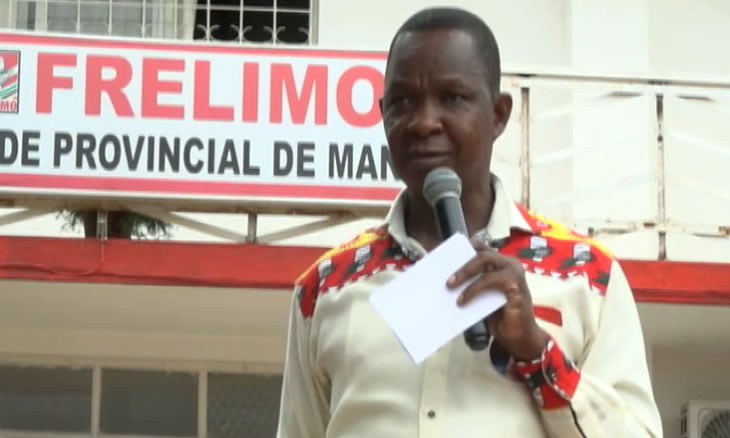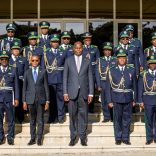Trump congratulates Chapo on Mozambique’s 50th anniversary of independence
Nyusi/Dhlakama consensus is “a starting point” – AIM report

O País /Roque Silva Samuel in Chimoio
The General Secretary of Mozambique’s ruling Frelimo Party, Roque Silva, said on Thursday that Mozambicans should not regard the consensus reached between President Filipe Nyusi and the leader of the Renamo rebels, Afonso Dhlakama, over issues of decentralisation, as the solution to all the country’s problems.
Speaking in the central city of Chimoio, Silva said that the consensus between Nyusi and Dhlakama was “an important step towards a definitive peace”. Each Mozambican should take the agreement as a starting point, from which actions could be taken conducive to the consolidation of unity, peace and development.
But Silva warned “we cannot think that everything has been done, and we can be at ease. It is important that everyone take on board the content of this consensus, and treats it as a challenge, which represents a change of panorama in the context of national politics, where each person accepts lovingly that he can build peace, respecting our differences”.
Silva said there is a visible political will on both sides to resolve the question of peace “which is an immeasurable gain for all Mozambicans”.
Silva said the consensus with Dhlakama shows that Nyusi is honouring the promise he made when he took office, in January 2015, that he would not rest until he had solved the question of peace.
“Imagine how difficult it was to make the other side understand that we don’t need to fight, kill, destroy or burn to solve the problems opposing brothers of the same country”, declared Silva. “We should be extremely proud that we have a President such as Filipe Nyusi who is struggling for the well-being of Mozambicans”.
Yet the consensus announced last week by Nyusi, and now put into the form of constitutional amendments that will be debated by the country’s parliament, the Assembly of the Republic, says nothing about the main obstacle to peace, which is the private army still commanded by Dhlakama. The disarming and demobilisation of Renamo is still being negotiated between government and Renamo teams.
The consensus is about the governance of municipalities, provinces and districts. Its most striking feature is that it abolishes the direct election of mayors. Instead whichever party or group wins most votes in the election of the municipal assembly will choose the mayor. There are parallel arrangements for the provinces and districts: the party with most votes in the election of provincial and district assemblies will nominate the provincial governor and district administrator.













Leave a Reply
Be the First to Comment!
You must be logged in to post a comment.
You must be logged in to post a comment.